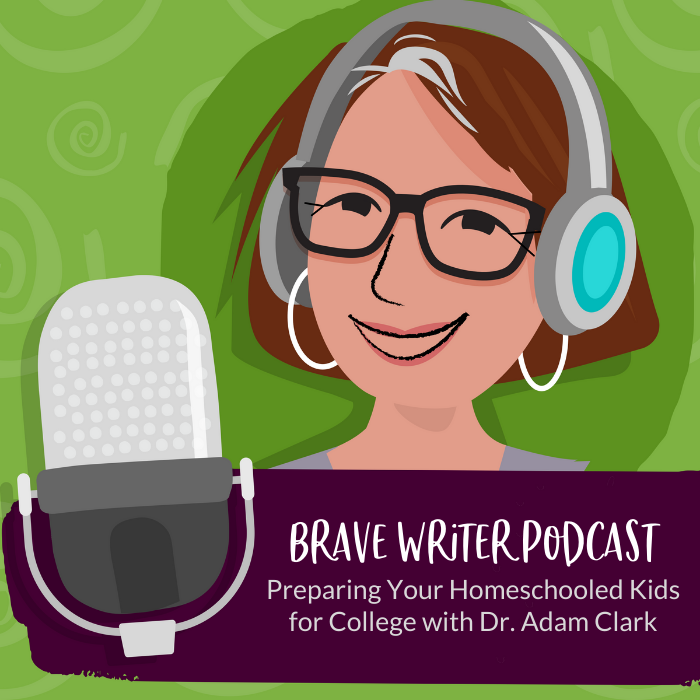Podcast: Preparing Your Homeschooled Kids for College with Dr. Adam Clark

Is university a rite of passage or merely a means to success? Or is there even more to it? Could college grow our young adult’s minds and hearts in addition to their thinking and practical skills?
Dr. Adam Clark is a professor and theologian at Xavier University. He’s committed to the idea that 21st century theological education must equip and inspire students to live according to the St. Ignatius dictum, “Go forth, and set the world on fire.”
During his tenure, Dr. Clark has received many distinctions and awards for his work. His courses contribute to the Jesuit practice of educating students in the service of faith and the promotion of justice. He currently serves as the co-chair of Black Theology Group at The American Academy of Religion, and he is frequently in demand by news programs for his comments on issues related to social justice.
On this episode of the Brave Writer podcast, Adam speaks from the fullness of his personal, Christian faith as he discusses critical thinking. His concepts, however, are life-giving – no matter which belief system you hold.
Listen to the Podcast
Show Notes
Typically, when one thinks of critical thinking, it’s centered around evaluation or persuasion, but Dr. Clark thinks of it more as “below the surface” thinking — pursuing the “why?” Usually, when asked a question, the first thought that comes to mind is not the honest answer. If you keep pressing that, you start to get to the source of the solution.
What Should Parents Do at the End of Their Child’s Homeschool Education?
Usually, college is an instinctual or automatic decision. People don’t put much thought into it. But due to the cost of education, it is essential to consider what you hope to get out of it. Everybody should ask the questions: “What do I want the outcome to be?,” “What do you hope to gain?,” and “Is this the best path to pursue that goal?” College should exist for a purpose and your decision to attend should be because it’s the best way to achieve that purpose.
It’s important to understand the difference between an occupation and a vocation. An occupation is where you earn your income, but your vocation is your calling. These two can overlap, but frequently, they don’t. When people can discern their calling, they can determine whether or not college is the best way to pursue their goals.
How Do Students Handle Their Beliefs Being Challenged?
It’s first necessary to understand the truth. Part of critical reasoning is understanding counterevidence. Even if you feel strongly about something, you should understand why and how people oppose your position. As a critical thinker, you have to understand all of the weaknesses in your argument, and these have to be rational arguments that reasonable people would hold. You cannot truly argue for a position you hold without understanding the other side.
How Do You Prepare Your Homeschool Students for College?
Most college professors would say that the best thing you can do for a college student is train them to become a good writer. Writing is thinking. When you can break down the components of an argument and know a strong premise from a weak premise, you will be fine, no matter where you go in life.
Resilience is another key component for students. You’ll face setbacks, but you mustn’t give up.
Is college for everybody? Not necessarily. That’s why it’s important to define your end goal. Once you do that, you can decide if it’s the right decision for you and, if it is, start preparing for what you hope to get out of it.
Resources
- Want help getting started with “Brave Writer?” Head over to bravewriter.com/getting-started
- Sign up for the “Brave Writer” newsletter to learn about all of the special offers we’re doing in 2021 + you’ll get a free 7-Day Writing Blitz guide just for signing up: http://go.bravewriter.com/writing-blitz
Connect with Julie
- Instagram: instagram.com/juliebravewriter
- Twitter: twitter.com/bravewriter
- Facebook: facebook.com/bravewriter


















